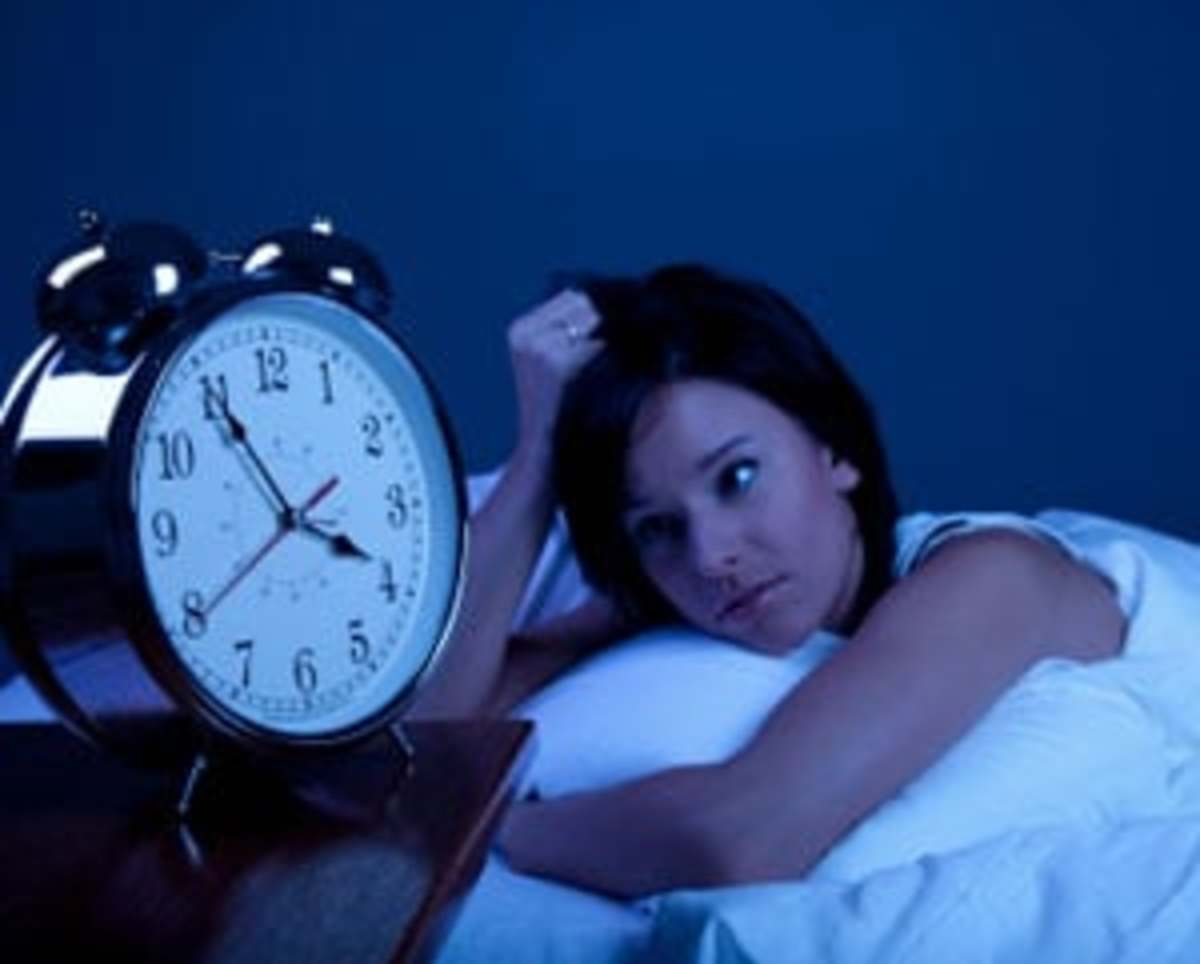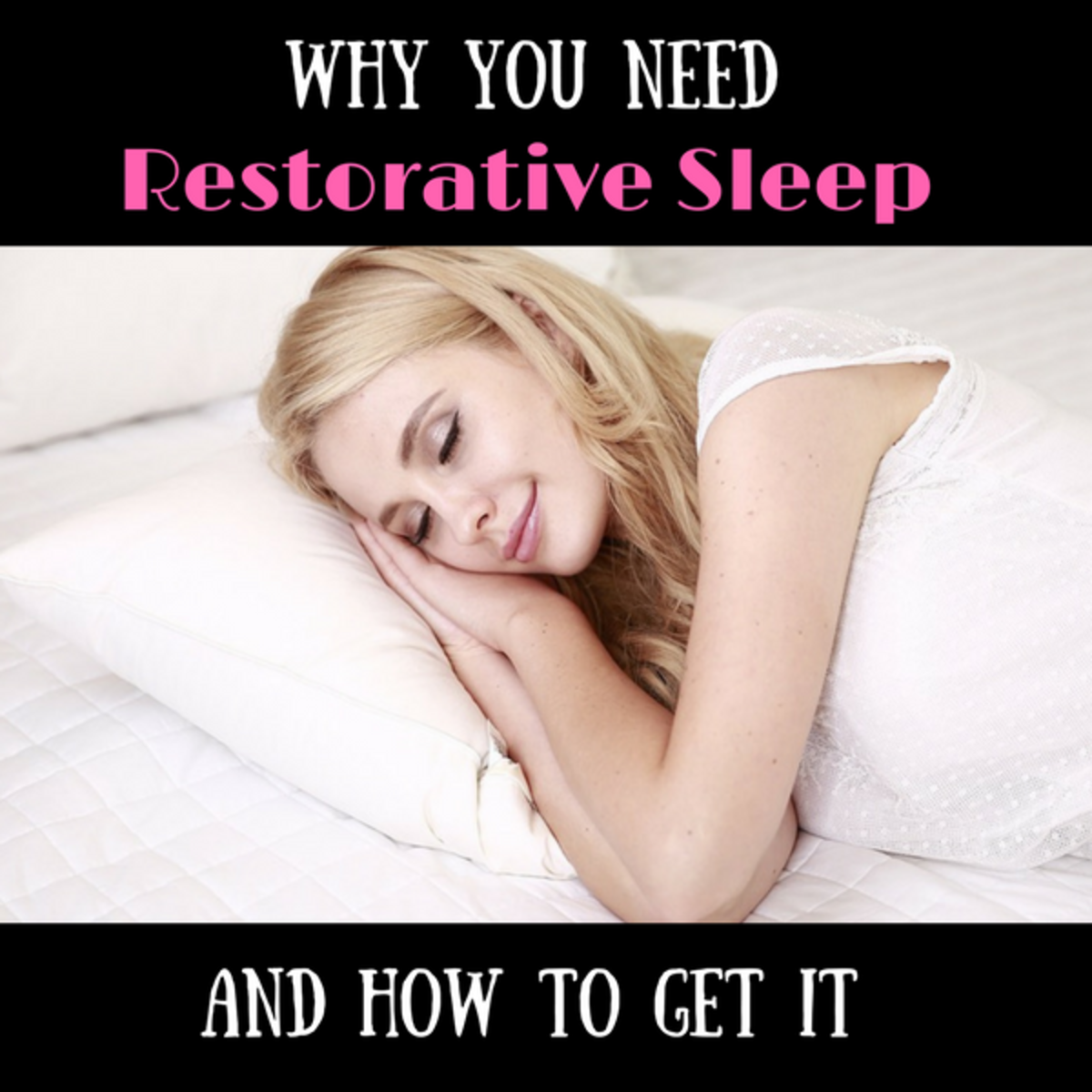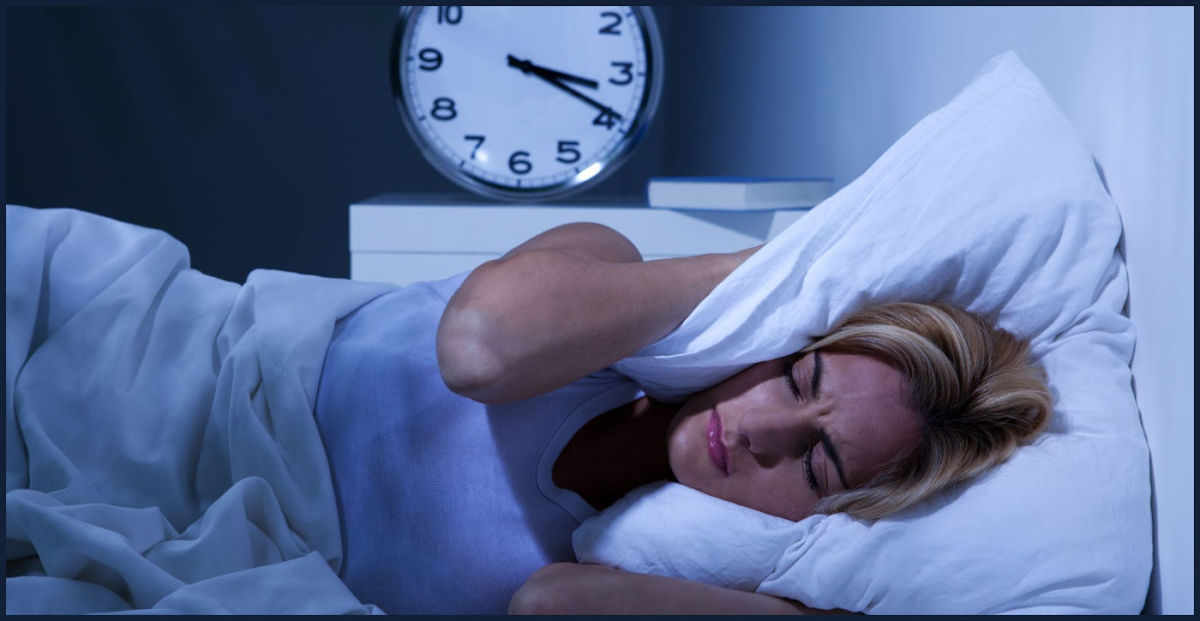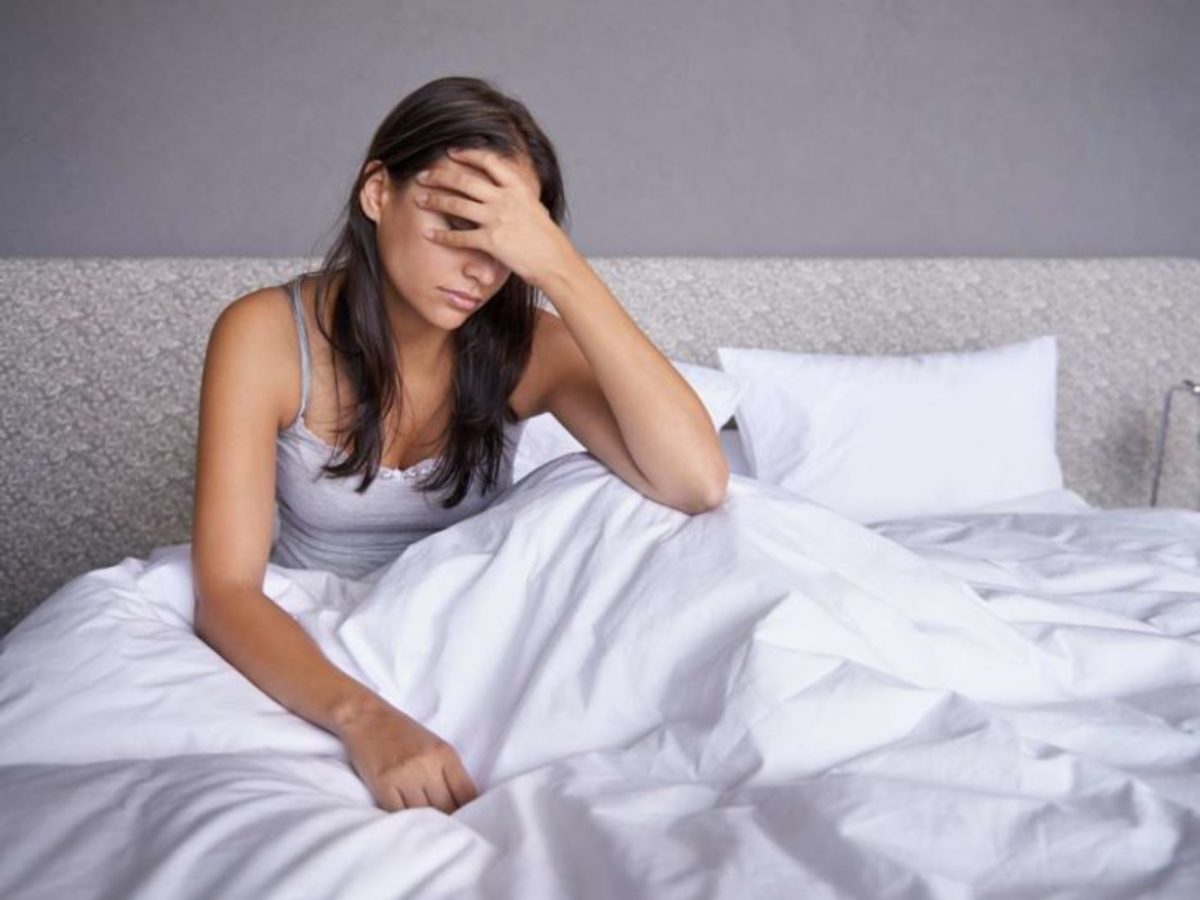- HubPages»
- Health»
- Personal Health Information & Self-Help»
- Self-Help for Sleep Issues & Sleeplessness
Difficulty Staying Asleep?

Middle of the Night Wakefulness or Insomnia
To some extent, waking up in the middle of the night is quite normal and part of the sleep pattern which works in cycles throughout the night, and as we move toward the lighter sleep stage we're more likely to awake.
However, let's look at some other causes such as certain medications which can lead to insomnia including those taken for:
- Colds and allergies
- High blood pressure
- Heart disease
- Pain medications
- Depression - especially SSRI antidepressants
As we get older, we tend to wake up more often.
If you are a women, hormone fluctuations and menopause are known causes of middle of the night wakefulness.
Is it your Environment?
Intermittent light shining into the room could wake you up - perhaps heavy curtains will alleviate that problem.
What about noise? Ear plugs are really the best solution, as sound proofing your room is not an easy solution.
Avoid turning on electronic items such as your phone or tablet, as the blue-spectrum light emitted is known to impede sleep.
Are you drinking too much caffeine late in the day or early evening. What about alcohol - it will put you to sleep but then disrupts the REM stage of sleep.
Perhaps it's in your mind?
If you are anxious or stressed - learn how to handle your stress in a productive way and maintain a calm and positive outlook.
Relaxation techniques benefit everyone and are a great way to wind down, calm the mind and prepare for sleep.
Stay out of your brain if you wake during the night - focus on the feelings in your body instead. Try deep breathing or meditation which can be done without getting out of bed, and remind yourself that relaxation also helps to rejuvenate your body.
An underlying condition?
Something else can trigger the problem, for instance indigestion, anxiety, bipolar disorder, enlarged prostate, thyroid, or more simply drugs such as those for high blood pressure can act as a diuretic which causes nightly trips to the bathroom.
When to see a doctor
- Fatigue or persistent daytime sleepiness
- Loud snoring and breathing pauses - sleep apnea
- Frequent morning headaches
- Sleep leaves you unrefreshed
- Falling asleep at inappropriate times
- Restless legs syndrome - muscle jerks can wake you from deep sleep.
- Acid Reflux - waking up with a nasty taste in your mouth after a fitful night's sleep.
Desperate for a good night's Sleep
Self or Prescribed Medication
While taking Melatonin or Valerian early in the evening, may help to improve your sleep quality, other over the counter or prescription sleeping pills aren't effective in banishing insomnia.
Prescribed sleeping pills knock you out rather than send you into a natural sleep, so the longer you take them the worse you'll feel as your body becomes dependent on them, and won't sleep with out them. As over 15 million prescriptions are written each year for sleeping pills, this becomes a serious problem.
New research by the Royal Pharmaceutical Society of Great Britain found that 80% of insomniacs had underlying problems such as heart disease, asthma or depression and self-medication poses a serious health risk as the condition goes undiagnosed. Furthermore daytime concentration levels are depleted by around one third and fatigue symptoms are actually 25% higher in those taking sleeping pills.
If your insomnia lasts for longer than a month, there may be an underlying medical condition and should be diagnosed by your doctor.
What do you do if you cannot sleep?
Middle of the Night Wake Up - Check your Thyroid
Feeling tired and having no energy are strongly linked to hypothyroidism. You will need to have some of the other symptoms for the Doctor to diagnose thyroid problems.
- Feel down or depressed
- Jittery and anxious with heart flutters - overactive thyroid which keeps the adrenaline pumping
- Your appetite is altered or your sense of taste and smell.
- Your brain feels foggy
- Loss of interest in sex
- Dry, itchy skin
- Constipation may be a problem
- Painful extremities or muscles and sudden tingling or numbness.
- High blood pressure can be a symptom of a thyroid disorder
- Sleep schedule is messed up, either you want to sleep all of the time or wake up in the middle of the night.
- You've gained weight
- Hair is thinning or falling out
- You have high cholesterol
One or more of these symptoms can make you doctor suspect thyroid problems. Testing and treating a thyroid disorder involves some trial and error so expect to visit the doctor a few times before it is right.

Natural Remedies
Certain nutrients, botanicals and other compounds help to lessen the effects of general fatigue. Experiment with the following natural herbs and remedies for insomnia:
Magnesium and calcium - taken together are effective sleep boosters
Eleuthero or Siberian ginseng - enhances mental activity and physical endurance.
Co-Enzyme Q10. This vital nutrient is involved in cellular energy production throughout the body.
Ashwagandha an Ayurvedic herb prized for helping the body deal with stress.
Cordyceps, is a traditional Chinese medicinal mushroom that helps fight fatigue and boosts energy levels.
Wild Lettuce quells anxiety, headaches and muscle or joint pain.
Lavender oil spritzed on your pillow before bedtime
Melatonin is the hormone that controls sleep. Studies show that lower doses are more effective so take 0.3 to 0.5 milligrams before bed
Meditation: Close your eyes and for 5 - 10 minutes pay attention to nothing but your breathing and the long slow breathes your are taking.
L-theanine is an amino acid found in green tea, helps maintain a calm alertness during the day but also a deeper sleep at night. The brand Suntheanine is excellent.
Valerian improves deep sleep and overall quality of sleep. It is most effective used over a longer period of time. However, there a few people who are actually energized by valerian and they should take it during the day.
How to cure insomnia with Cognitive Behaviour Therapy
CBT for Insomnia
Cognitive Behavioural therapy is aimed at breaking the cycle of insomnia. Poor sleep tends to lead to anxiety, and in turn could lead to use of sleeping pills or alcohol, which will worsen the insomnia.
CBT can be a safe and effective treatment, but it is not an instant remedy it requires time and persistence. However, it is worth sticking to the programme to avoid the pitfalls of drugs or alcohol causing further problems.
Initial studies suggest that some CBT programmes online can significantly improve sleep length and quality. If you choose to go this route, please very carefully check the credentials of the programme and if possible try to verify their success rate.
Professional Medical Evaluation and Treatment
It's important to speak to your doctor for a diagnoses and to rule out any underlying medical condition or disorder that may be causing your insomnia.








